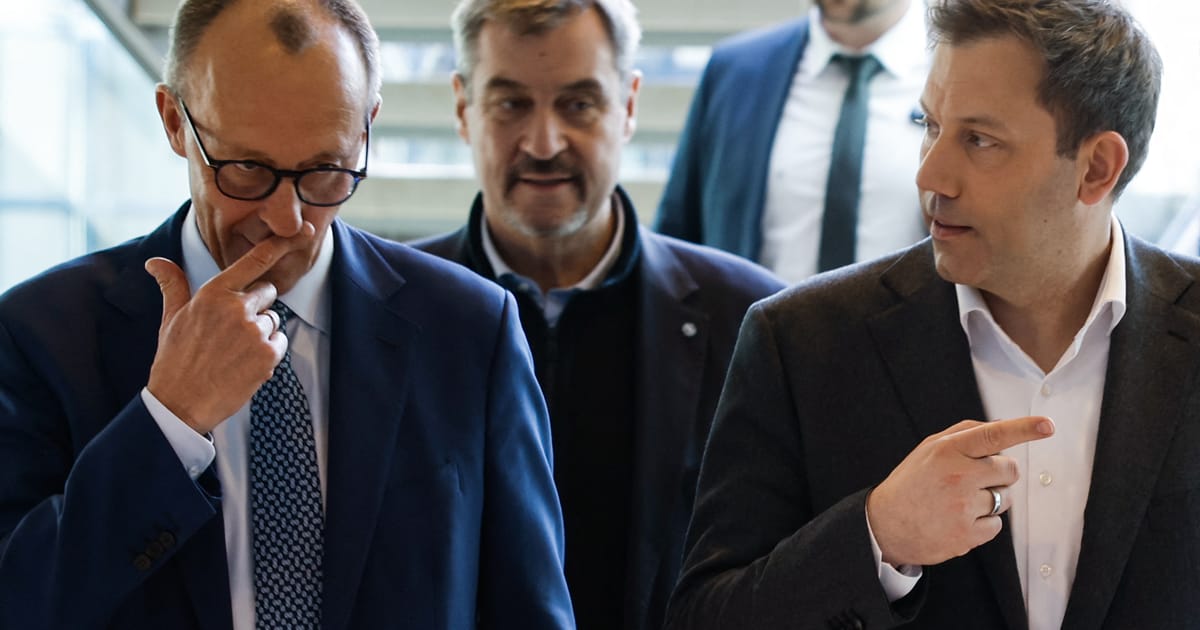Recent decisions by the U.S. government “have triggered new turbulence,” he added. “We don’t yet know which direction the international situation will take. But that’s why our message today is all the clearer: We want to and we will help shape change in the world for Germany.”
Despite Merz’s pledges to provide strong German leadership within Europe, he emerges from coalition negotiations as a damaged party leader. His landmark agreement with the SPD and the Greens to unleash hundreds of billions of euros in debt-fueled spending for defense and infrastructure was largely celebrated abroad. At home, however, it fomented dissatisfaction within parts of Merz’s conservative base and opened him to attacks from the far-right Alternative for Germany (AfD), which is set to become the largest opposition party in the country’s parliament. Merz’s approval ratings have plummeted since his conservatives’ election victory.
Economic competitiveness and migration
The final phase of negotiations between the conservatives and the SPD brought several key sticking points to the surface on issues such as tax cuts, the economy and migration.
Merz said the compromise agreement will strengthen Germany’s “price competitiveness” by using tax cuts and tax incentives for investment in equipment, adding that the new government will reduce corporate income tax by one percent annually in five equal steps as of 2028. In order to bring down the high cost of electricity in Germany, Merz said the coalition will reduce the electricity tax to the European minimum, cut grid fees and introduce an industrial electricity price.
It was migration, however, that emerged as one of the most politically charged issues late in the talks. Facing pressure from his right flank due to the AfD’s strong election result, Merz’s conservatives pushed for asylum-seekers to be rejected at Germany’s borders. The SPD argued against the move, saying it would alienate Germany’s neighbors at a time when the country needed EU solidarity to combat Trump’s tariffs.
In the end, the two sides reached a deal that appeared to avoid the most radical proposals but still struck a much harder line, with Merz vowing to “largely put an end to irregular migration” with controls at national borders, including “rejections of asylum seekers.” The incoming chancellor also said the government would launch a “repatriation offensive,” suspend family reunification, and increase the number of nations Germany considers safe countries of origin.
